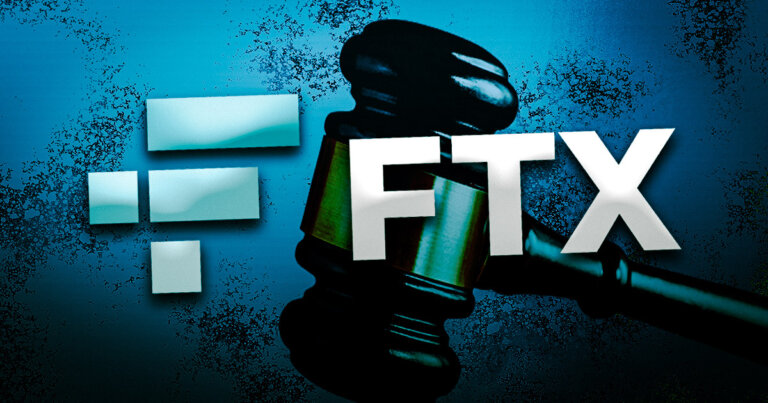 SBF family, associates refuse to cooperate in FTX bankruptcy case as arrest details emerge
SBF family, associates refuse to cooperate in FTX bankruptcy case as arrest details emerge SBF family, associates refuse to cooperate in FTX bankruptcy case as arrest details emerge
Developments around the defunct FTX exchange and its former leader have emerged.

Cover art/illustration via CryptoSlate. Image includes combined content which may include AI-generated content.
Associates and family members of Sam Bankman-Fried are refusing to cooperate in FTX’s bankruptcy case, according to a court filing dated Jan. 25.
SBF associates not cooperating
Following its collapse last November, the once-leading crypto exchange FTX entered bankruptcy proceedings in the U.S. Bankruptcy Court for the District of Delaware.
Now, as part of those proceedings, the company is seeking relevant information from former founder and CEO Sam Bankman-Fried and others with whom he is close.
According to a filing, certain individuals are “currently cooperating” to provide “important information,” while others are not. As such, FTX and its creditor committee aim to have those individuals subpoenaed and compelled to provide documents and information.
That information should aid in recovering supposedly misappropriated funds. Bankman-Fried’s family members and associates have made transactions, received donations, and purchased pieces of property — all of which could be relevant to tracking the flow of funds.
Sam-Bankman Fried himself is allegedly not cooperating with the case. Sibling Gabriel Bankman-Fried and associate Nishad Singh have provided no meaningful response. Associates Gary Wang and Caroline Ellison have refused to provide information.
Furthermore, Bankman-Fried’s mother, Barbara Fried, has ignored requests for information. Lawyers for his father, Joseph Bankman, are reportedly cooperating.
SBF’s arrest was secretive
Sam Bankman-Fried and other sources close to him also disclosed new details about his imprisonment in the Bahamas during a Forbes interview on Jan. 26.
According to Forbes, Bankman-Fried received a call from his lawyer on Dec. 12 to warn him of his impending arrest, which would take place later that day. Bankman-Fried’s lawyer had obtained that information from the FBI. The FBI also offered a choice: Bankman-Fried could wait for his impending arrest — which would allow him to remain in the Bahamas — or he could agree to be extradited to the U.S. immediately.
Bankman-Fried and his parents attempted to find out whether the offer was legitimate by calling various Bahamas officials who knew nothing about the development.
According to a diplomatic note, the U.S. Department of Justice (DOJ) believed that Bankman-Fried would attempt to flee the Bahamas or destroy important evidence if he were allowed to remain free. Supposedly, that motivated the DOJ to keep Bankman-Fried’s arrest secret in order to pressure him to return to the United States.
Ultimately, only two Bahamas officials — Attorney General Leo Pinder and Magistrate Court Judge JoyAnn Ferguson-Pratt — were aware of the planned arrest. The lack of communication led to Bankman-Fried’s detainment at Fox Hill Prison.
Lack of internet drove extradition
Sam Bankman-Fried did not recount that information personally. He did, however, repeat an earlier sentiment by noting that a lack of internet was the hardest part of being in prison. He said:
“I didn’t realize how much more important than everything else combined internet access is to me, but that was like 80% of the total cost of being in prison.”
Bankman-Fried was allowed to make just one 30-minute call during his prison stay and was sometimes able to read a newspaper. He also was able to talk to his lawyers on a daily basis. This limited communication — specifically, the absence of internet access — was the “driving force behind his extradition and bail deal,” Forbes says.
On Dec. 21, after nine days in prison, Bankman-Fried agreed to extradition. Earlier reports suggested that Bankman-Fried and his lawyer would fight extradition before they chose to reverse that position days later. Bankman-Fried soon returned to the U.S., where he faced charges on eight counts, including fraud and money laundering.
FTX’s bankruptcy case is separate from Bankman-Fried’s criminal case. Ellison and Wang cooperated with authorities to reach a plea deal in mid-December. Bankman-Fried himself will remain on bail until his October trial.
























































